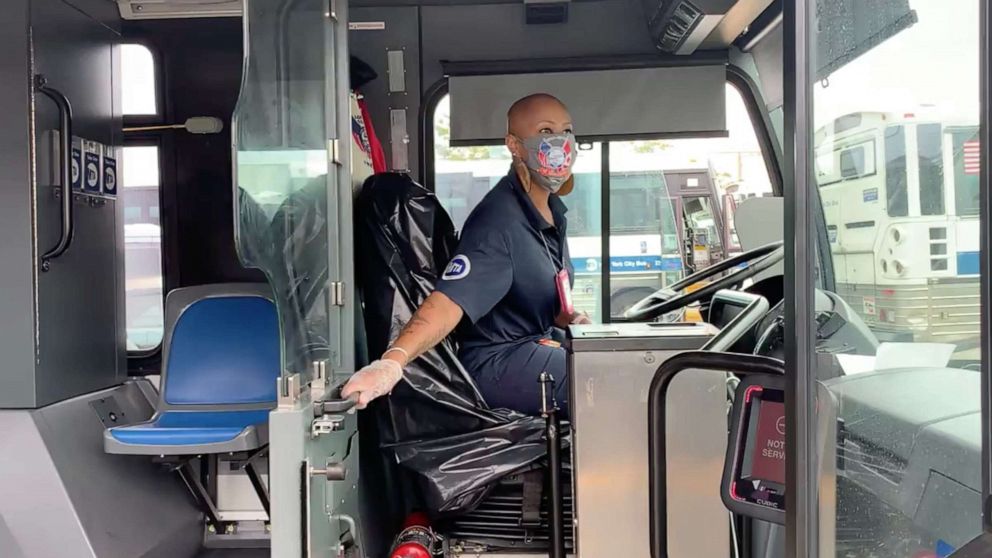Transit worker, a COVID-19 survivor, describes her experience as 'humbling'
Before the sun is up, 44-year-old New Jersey resident Mia House begins her day. She wakes up and makes her way to the bus depot to begin the essential job of providing public transportation to New Yorkers.
It’s a position she’s had with New York's Metropolitan Transportation Authority (MTA) for 11 years and she says she really enjoys it.
“I love driving; it's therapeutic to me,” House told ABC News. “I'm in my own space.”
But as the the coronavirus swept through the country, House witnessed the virus creep into her community.
“I started hearing coworkers that have contracted the virus and I'm like, 'Wow, this is really hitting home,'” she said.
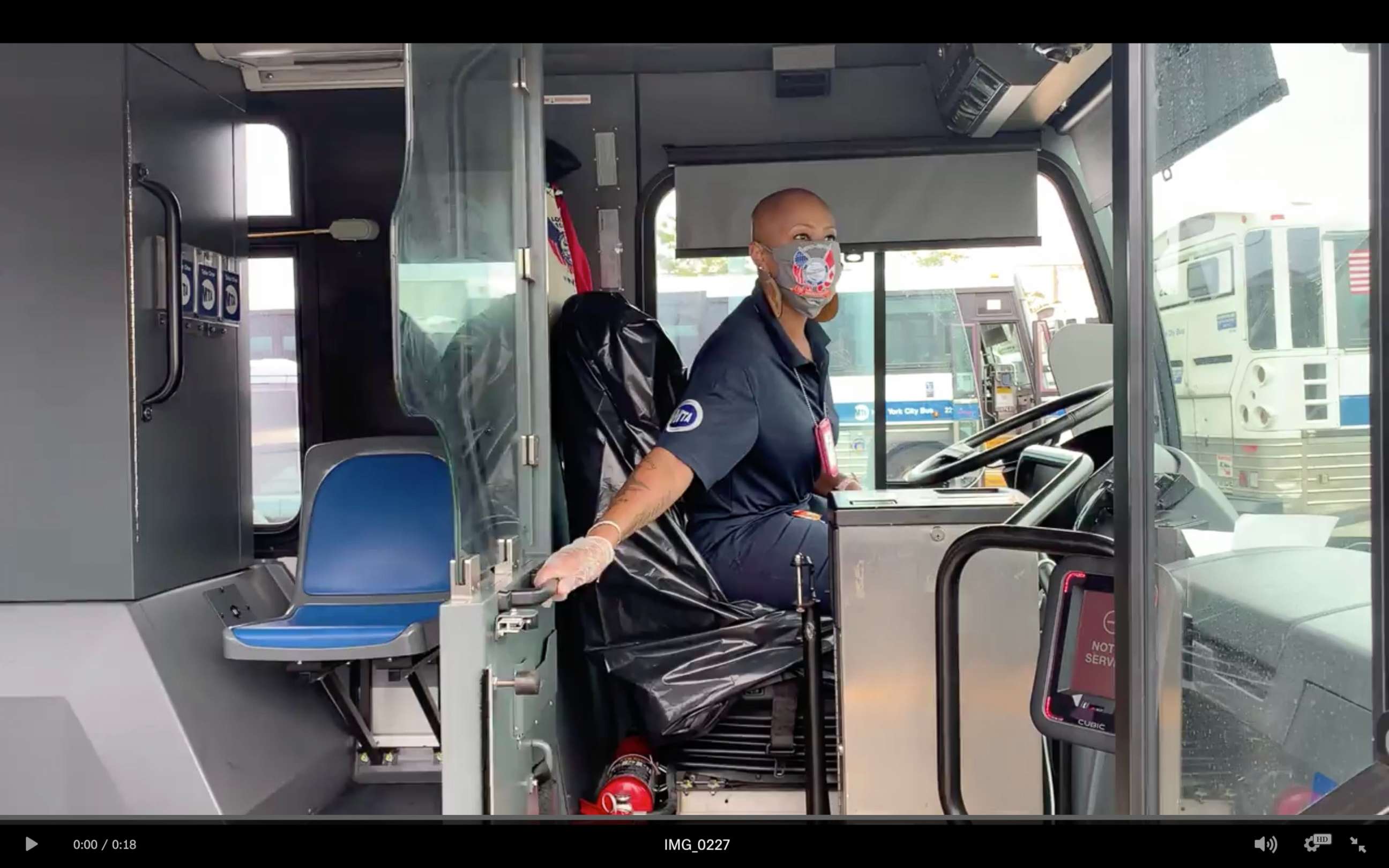
In mid-March, House said she started to feel symptoms of the virus, COVID-19. At first, she thought it was her asthma or allergies, but the symptoms persisted. She said she lost 11 pounds in the first week and realized something was wrong. After gaining access to testing, she tested positive for the coronavirus.
“Within all the city employee agencies, MTA had the highest death rate from this COVID,” House said. “We are still city employees that are on a daily basis working with the public face to face.”
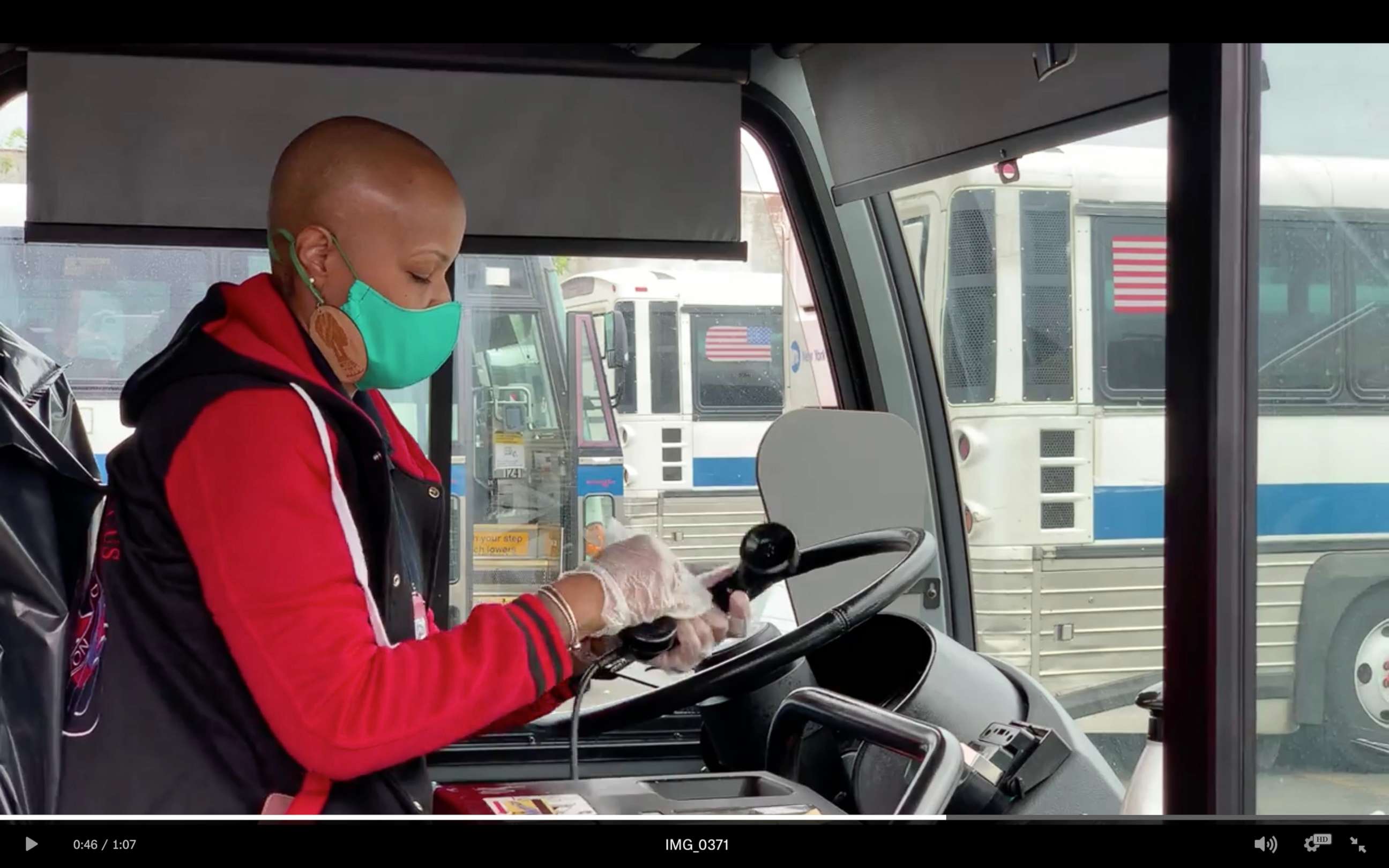
Over 120 MTA employees have died from COVID-19.
House and her coworkers have adjusted to new schedules and protocols that have been developed in response to the COVID-19 crisis. Rather than working a typical work week of five days on and two days off, she now works five days on and nine days off. House said that this was done to account for operators falling ill and to assure they had enough operators to still service passengers, although ridership has gone down significantly.
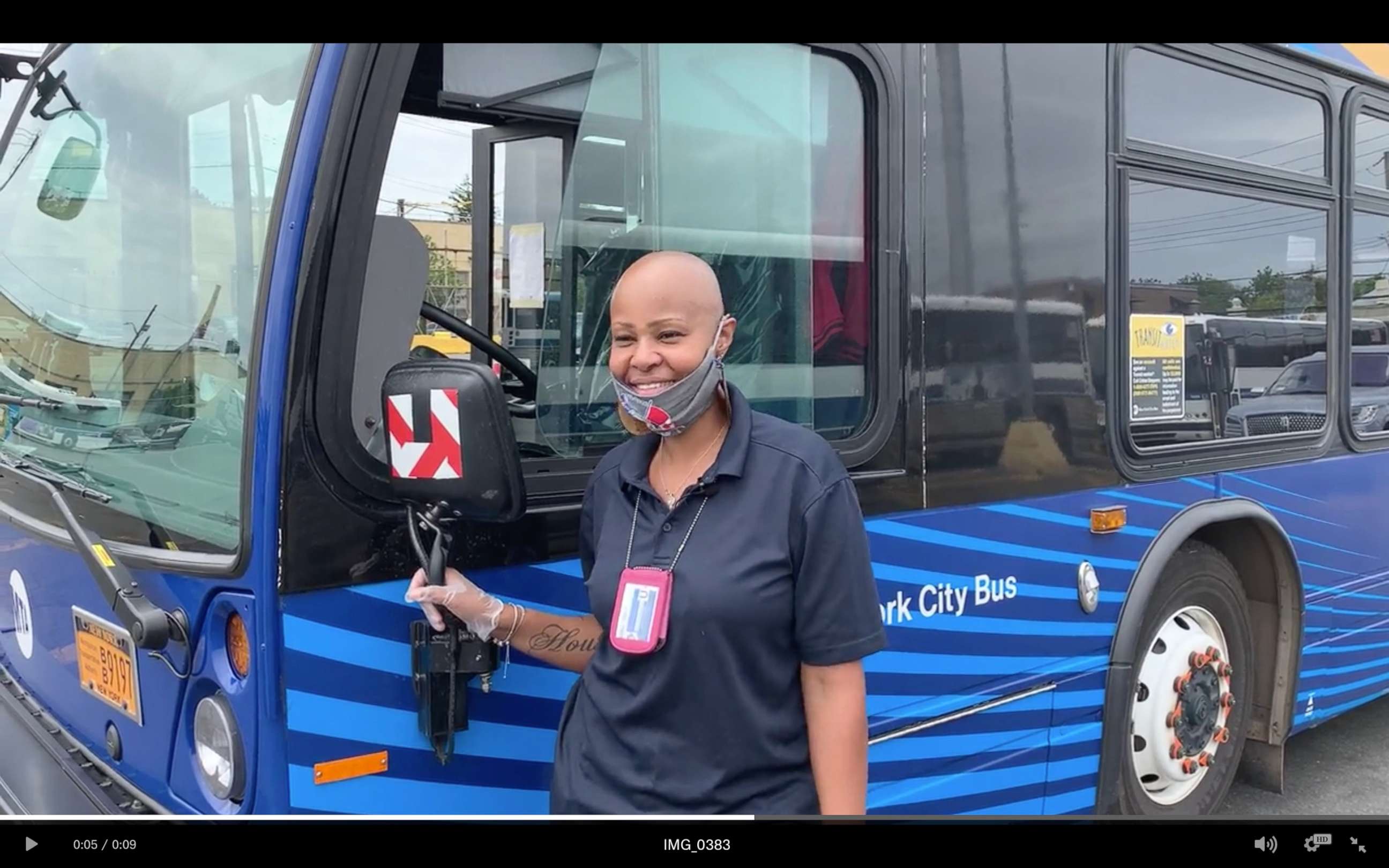
The MTA has increased health and safety precautions, such as a halt to collecting fares and requiring passengers to enter through the rear door of buses, but House still fears the unknown.
“You still have people aboard the bus with no mask at all,” she said. “They're eating, they're coughing, so we're still constantly at risk. So that's ... a fear.”
In audio diaries she recorded, House leads us through her personal experience as a transportation worker during the COVID-19 crisis. Her story can be heard in this week’s episode of the ABC News podcast “The Essentials: Inside the Curve.”
Before the coronavirus pandemic, House was looking forward to going on a trip to celebrate her birthday, which falls on Leap Day. She enjoys spending time with her children, who range in age from 13 to 24, and her husband, with whom she's been married for a year this July.
The last photo House has on her phone from before her world changed due to the COVID-19 crisis is from a trip she took with her union to Albany, New York, to discuss various worker protections.
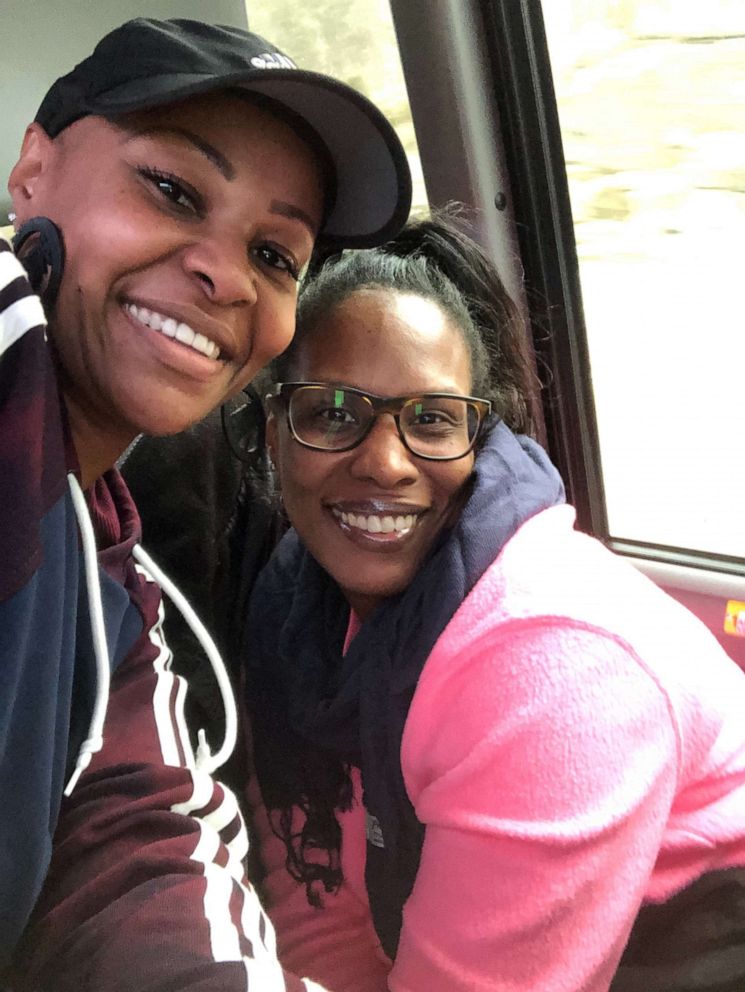
“We're taking selfies together on a bus ride up to New York State, smiling together, close, no mask,” she said.
House has described her experience during the pandemic as “humbling” and said that it made her appreciate life in new ways. She thinks she is going to come out of this experience a better person.
“A lot of close people have passed due to this and it hurt,” she said. “Nobody thought at the beginning of the year this was going to happen or, you know, we were going to go through something as tumultuous as this.”
As New York City moves toward the first phase of reopening on June 8, House said she is noticing that the buses are becoming more crowded. Despite some fears, she sees her job as an important part of helping the community.
“The reason I wanted to get back to work was to continue helping the public,” she said. “This is what I signed up for; this is my job. I wanted to get back to help my union to help my coworkers in this time of pandemic that we’re going through."
The job can be stressful, from dealing with screaming babies to traffic, but House values when passengers go out of their way to express their gratitude.
“The fact that some of the passengers, they make it their business to say thank you,” she said. “They make it their business to say thank you and I appreciate what you're doing.”
